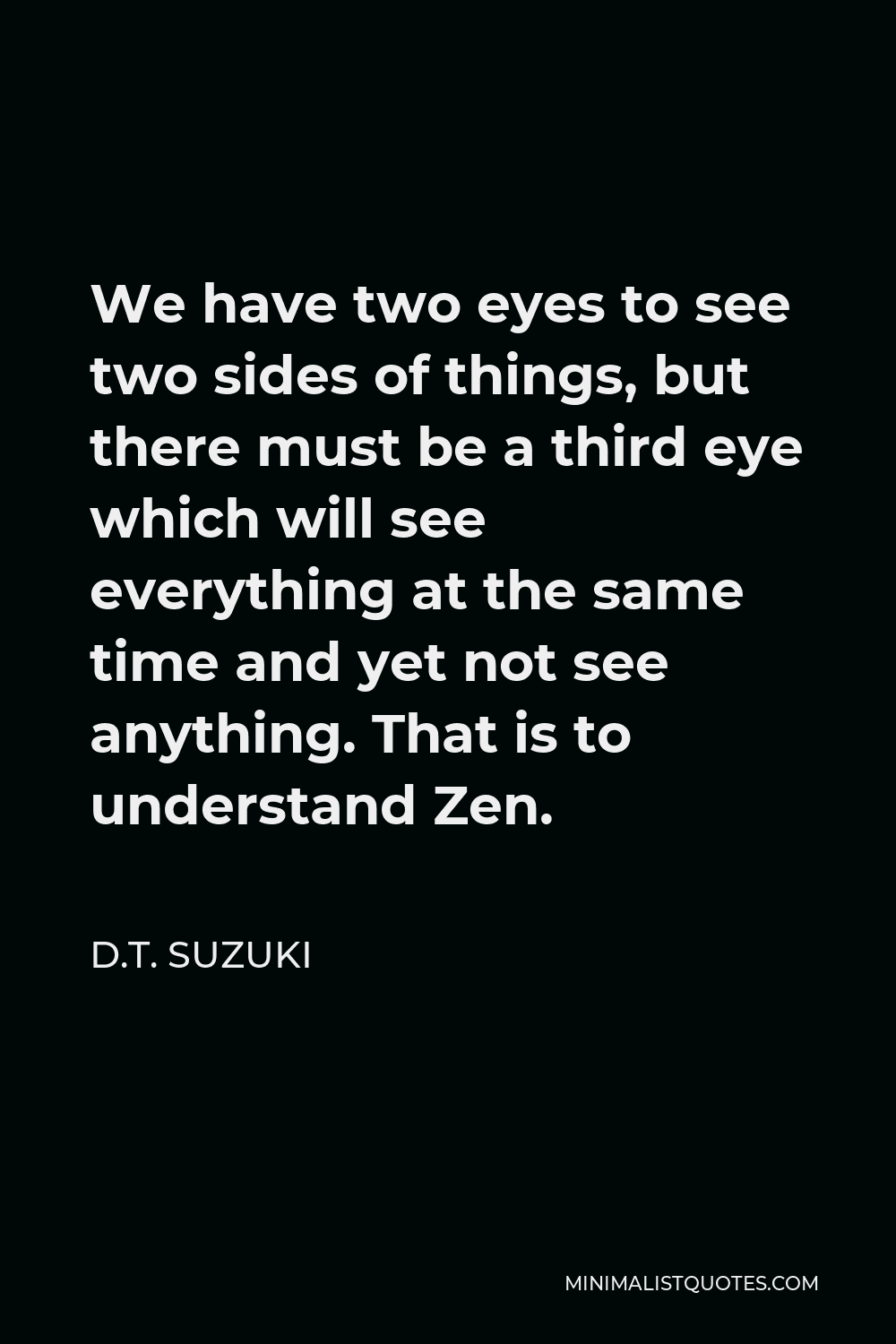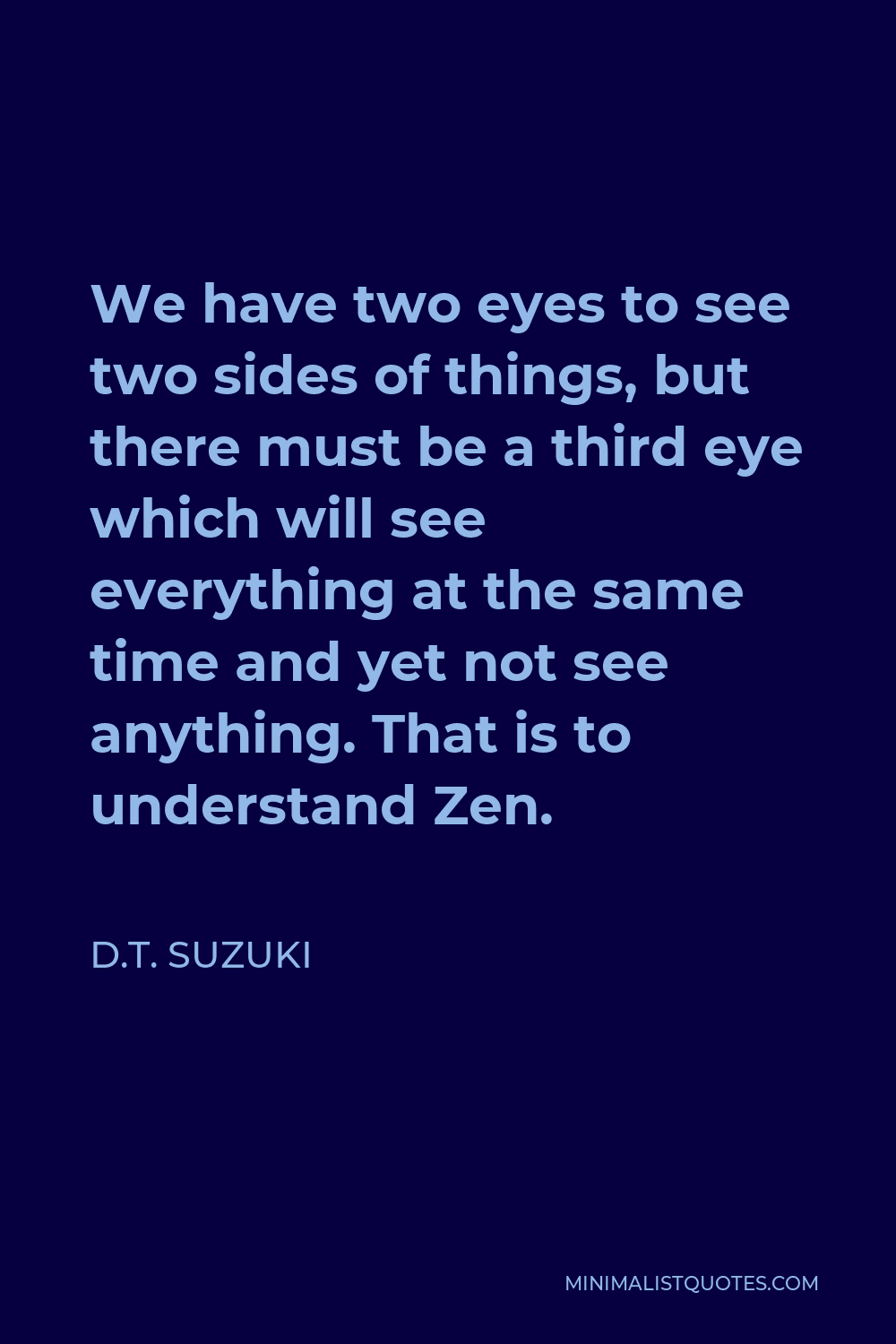As soon as you raise a thought and begin to form an idea of it, you ruin the reality itself, because you then attach yourself to form.
D.T. SUZUKIWe have two eyes to see two sides of things, but there must be a third eye which will see everything at the same time and yet not see anything. That is to understand Zen.
More D.T. Suzuki Quotes
-





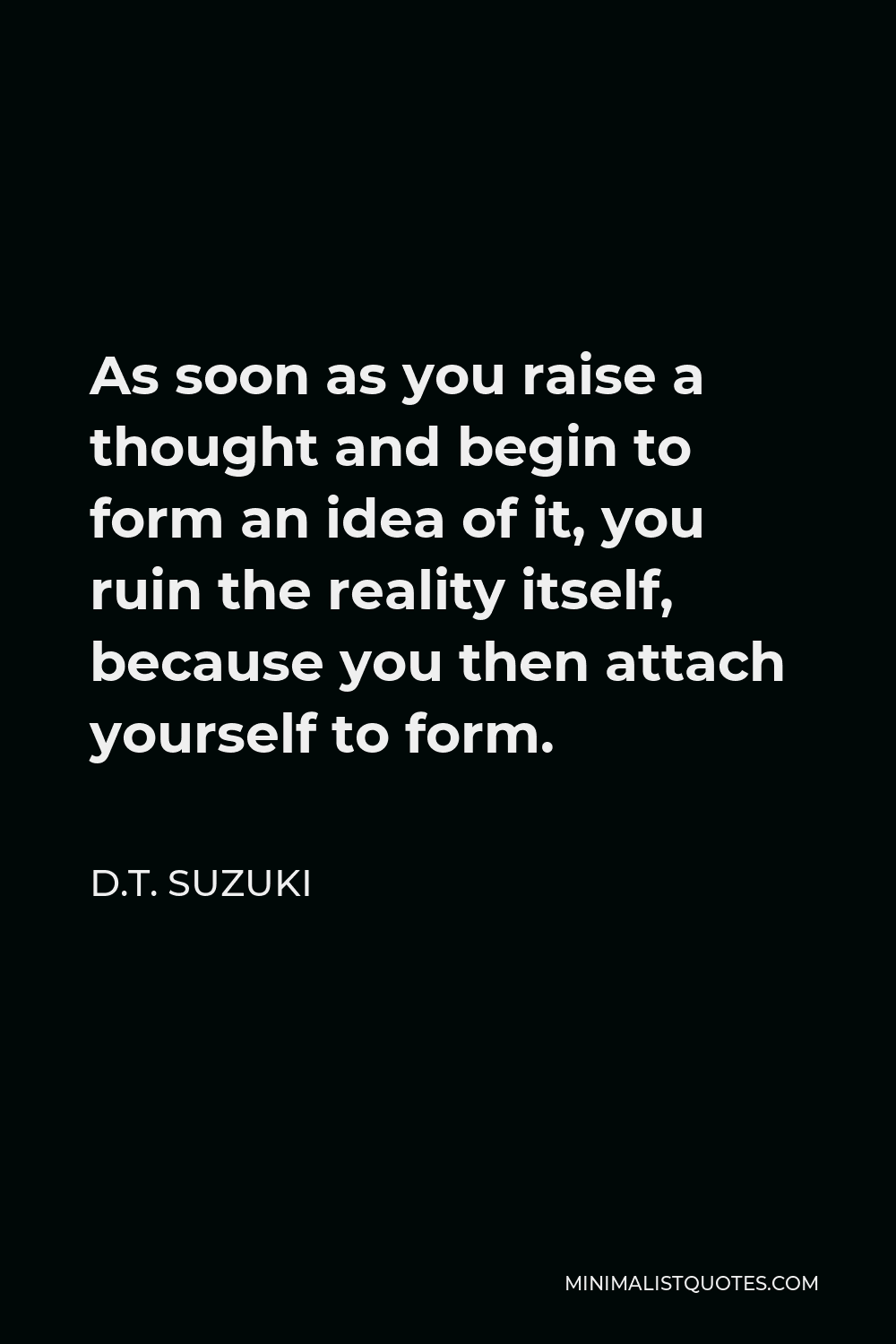
-





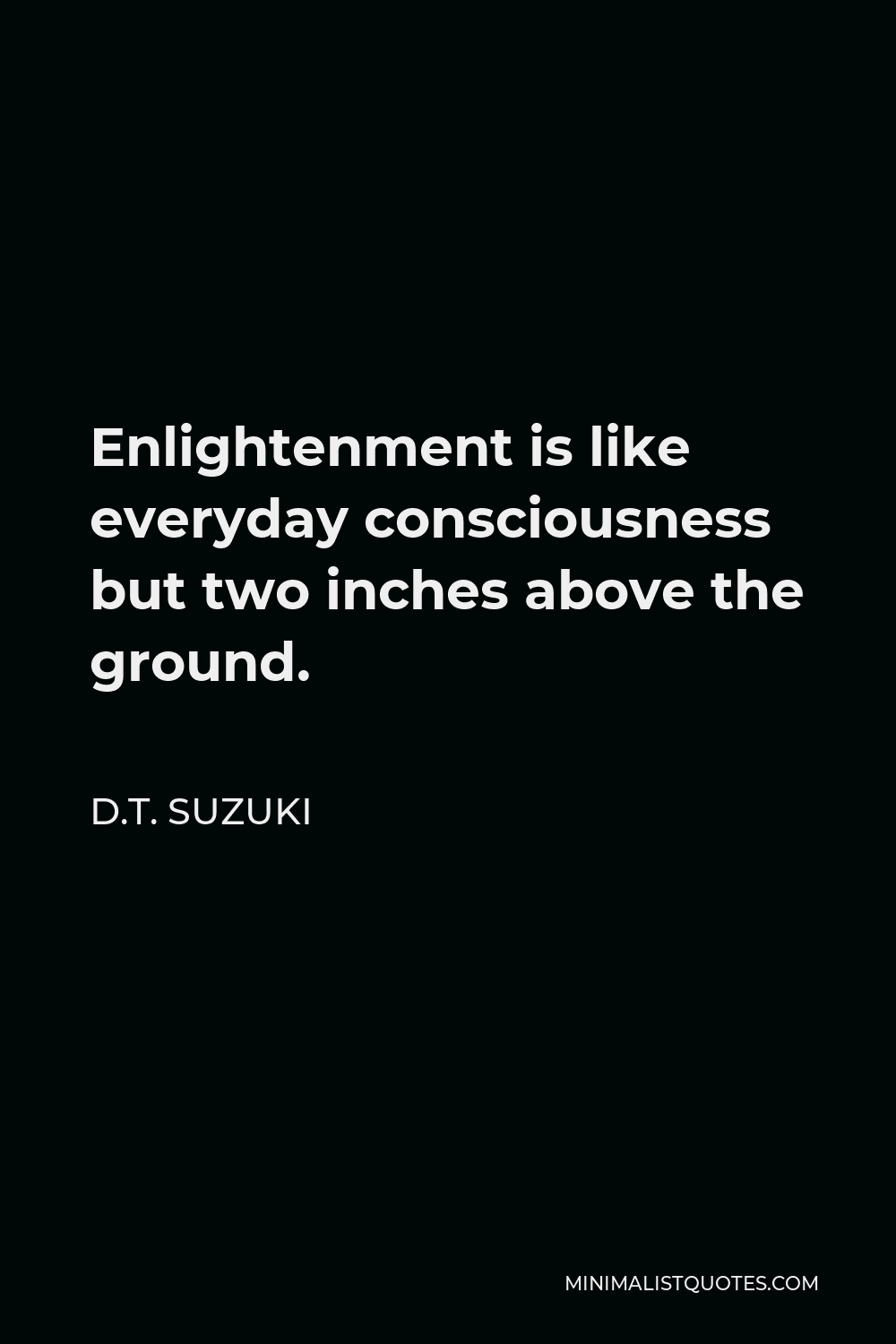
Enlightenment is like everyday consciousness but two inches above the ground.
D.T. SUZUKI -





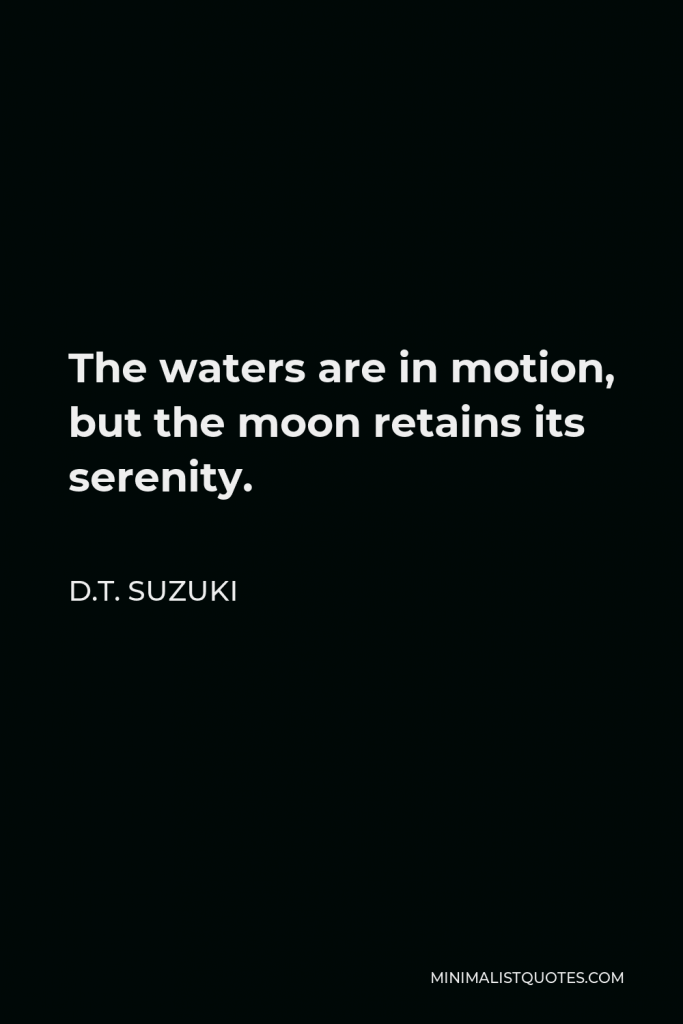

The waters are in motion, but the moon retains its serenity.
D.T. SUZUKI -






Dhyana is retaining one’s tranquil state of mind in any circumstance, unfavorable as well as favorable, and not being disturbed or frustrated even when adverse conditions present themselves one after another.
D.T. SUZUKI -





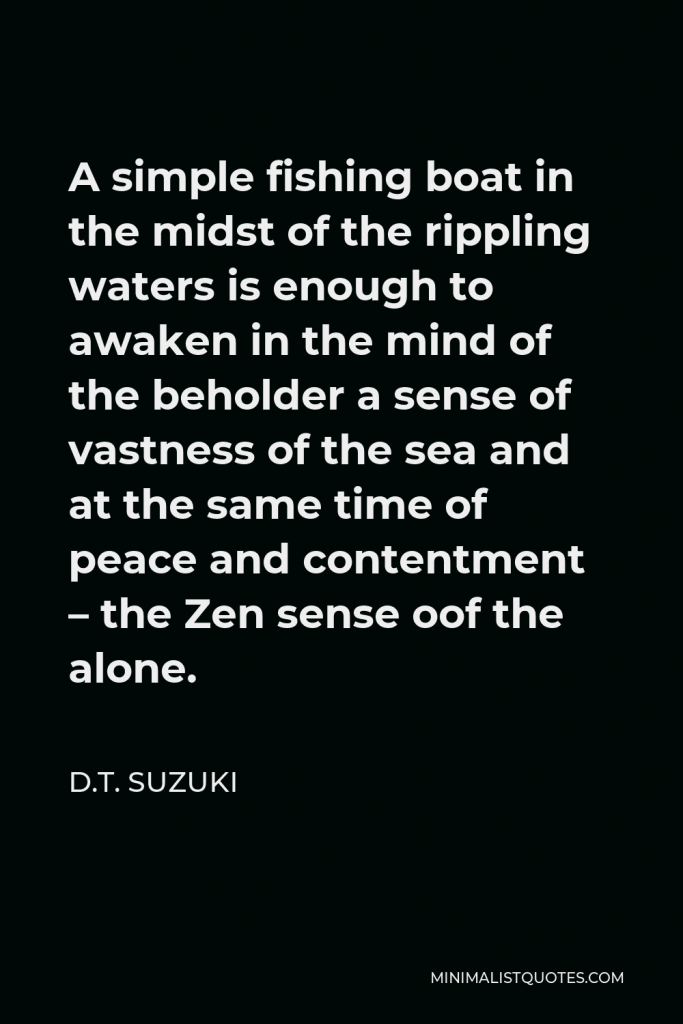

A simple fishing boat in the midst of the rippling waters is enough to awaken in the mind of the beholder a sense of vastness of the sea and at the same time of peace and contentment – the Zen sense oof the alone.
D.T. SUZUKI -





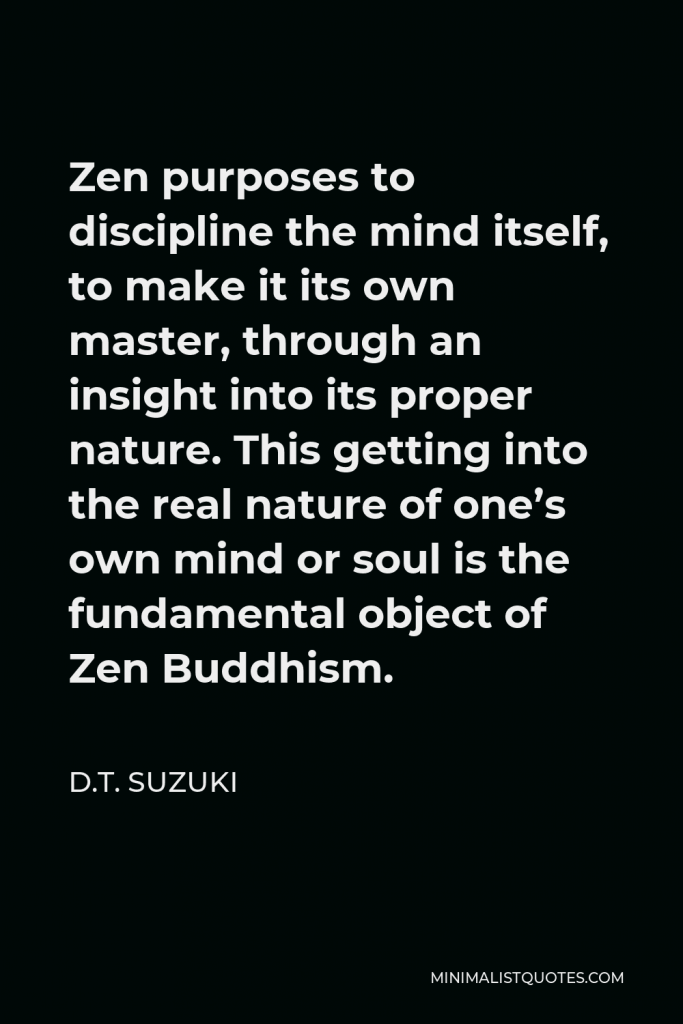

Zen purposes to discipline the mind itself, to make it its own master, through an insight into its proper nature. This getting into the real nature of one’s own mind or soul is the fundamental object of Zen Buddhism.
D.T. SUZUKI -





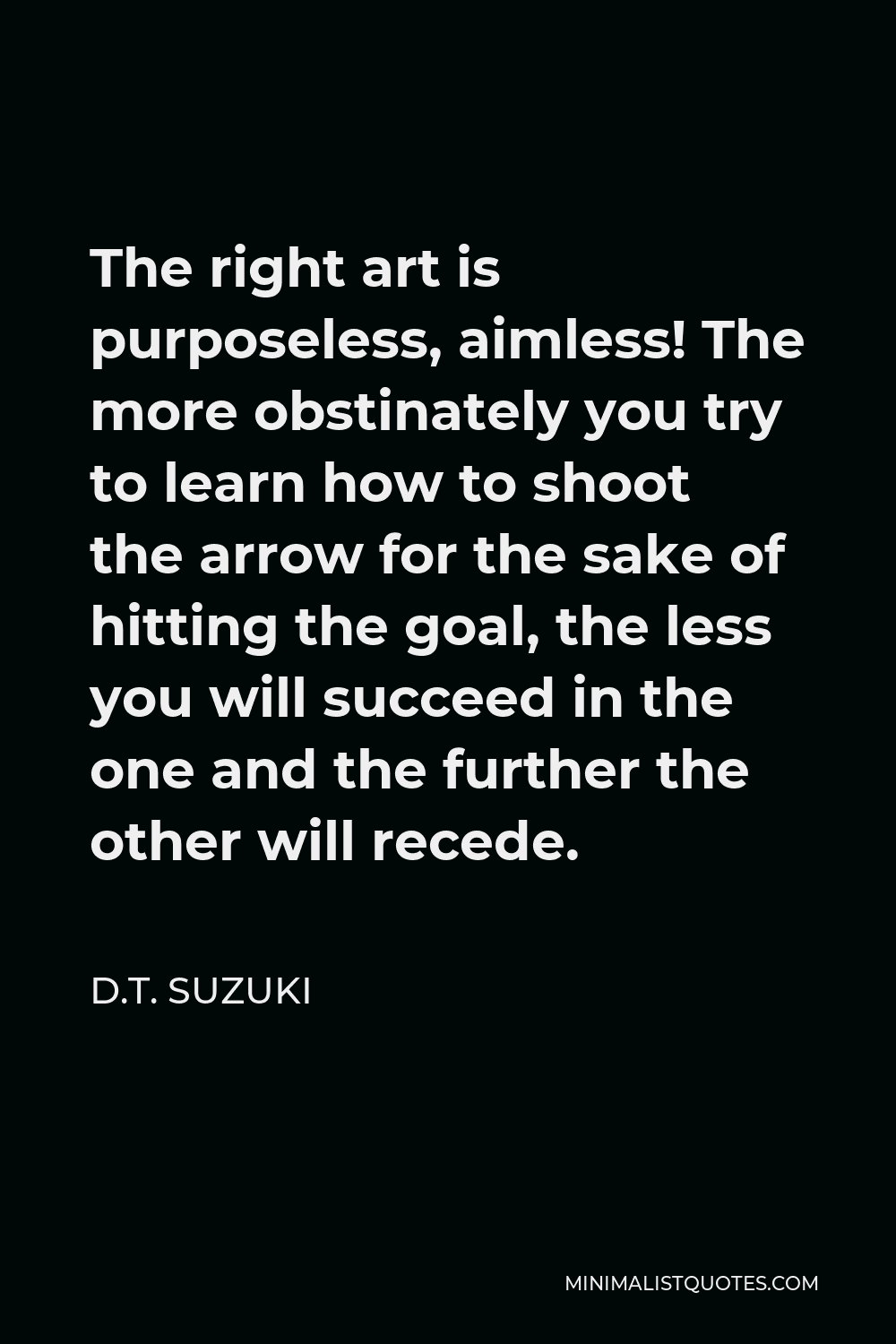
The right art is purposeless, aimless! The more obstinately you try to learn how to shoot the arrow for the sake of hitting the goal, the less you will succeed in the one and the further the other will recede.
D.T. SUZUKI -





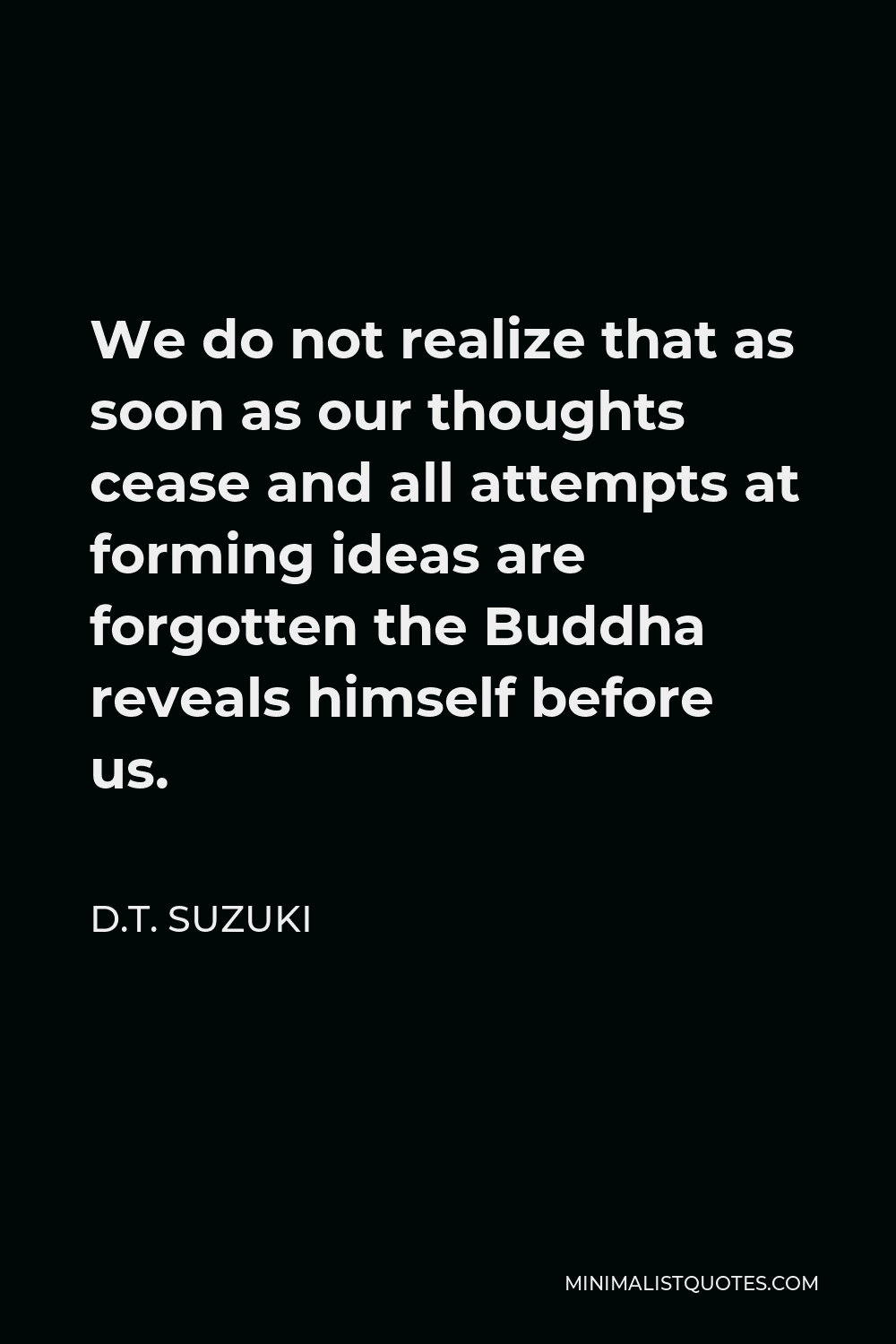
We do not realize that as soon as our thoughts cease and all attempts at forming ideas are forgotten the Buddha reveals himself before us.
D.T. SUZUKI -






The claim of the Zen followers that they are transmitting the essence of Buddhism is based on their belief that Zen takes hold of the enlivening spirit of the Buddha, stripped of all its historical and doctrinal garments.
D.T. SUZUKI -





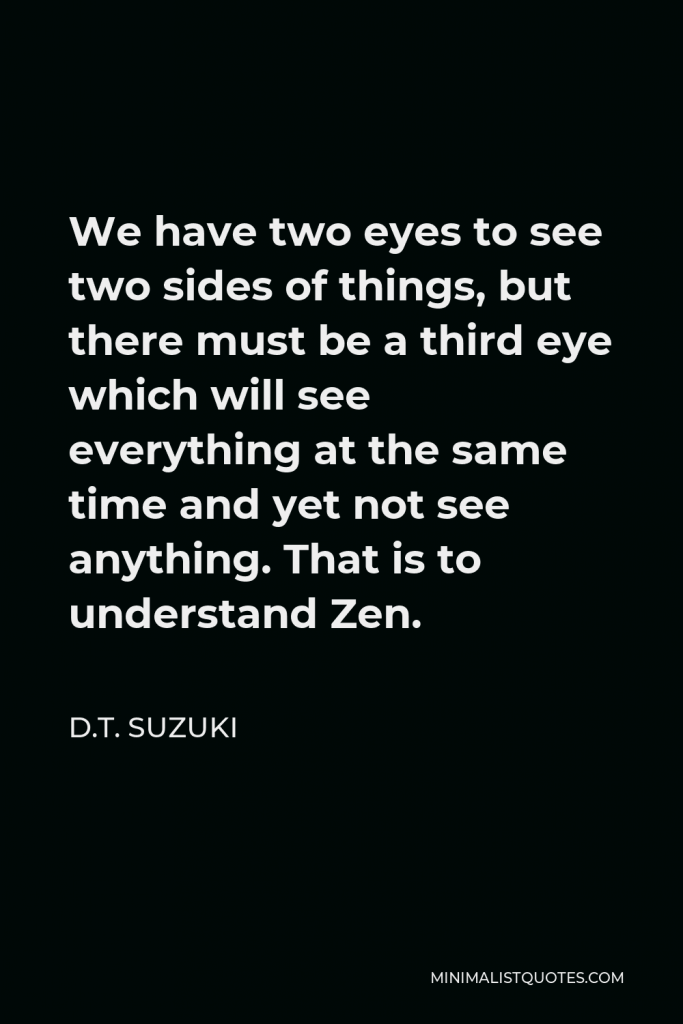

We have two eyes to see two sides of things, but there must be a third eye which will see everything at the same time and yet not see anything. That is to understand Zen.
D.T. SUZUKI -





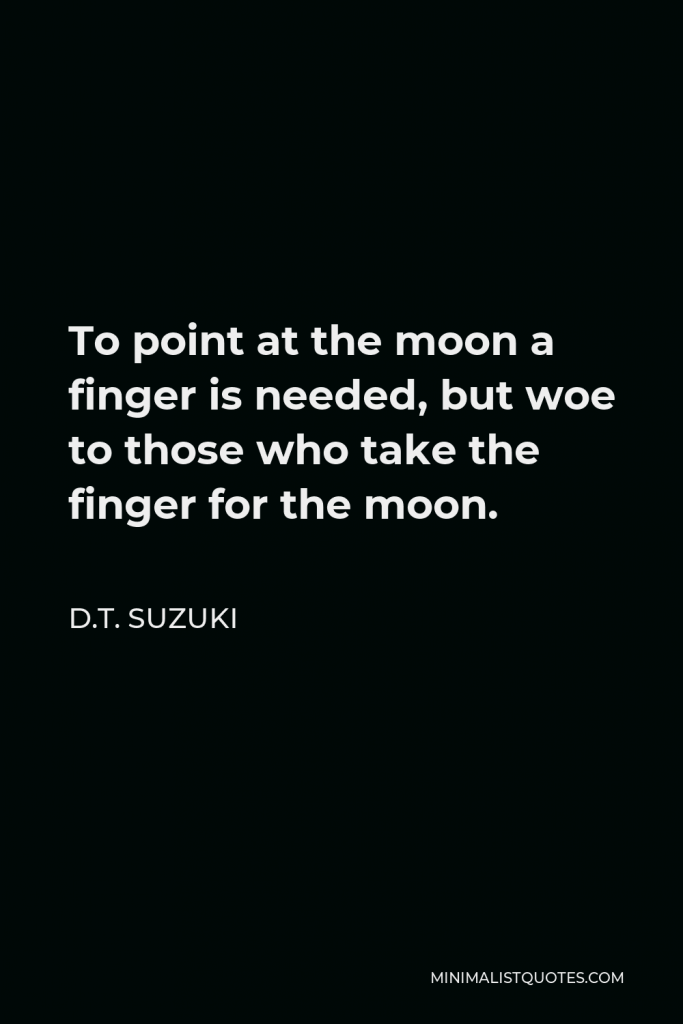

To point at the moon a finger is needed, but woe to those who take the finger for the moon.
D.T. SUZUKI -





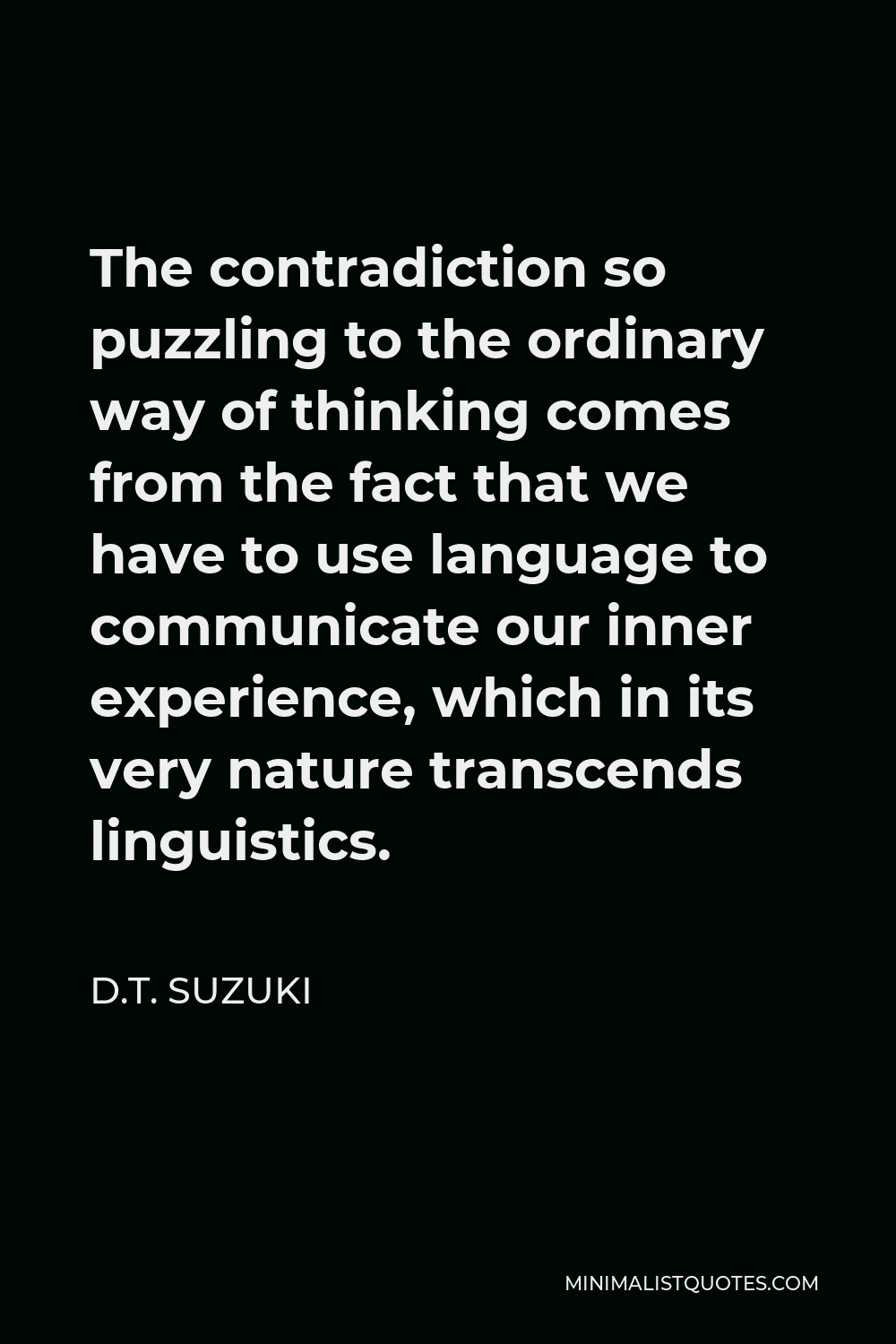
The contradiction so puzzling to the ordinary way of thinking comes from the fact that we have to use language to communicate our inner experience, which in its very nature transcends linguistics.
D.T. SUZUKI -







All great artists, all great religious leaders, and all great social reformers have come out of the intensest struggles which they fought bravely, quite frequently in tears and with bleeding hearts
D.T. SUZUKI -





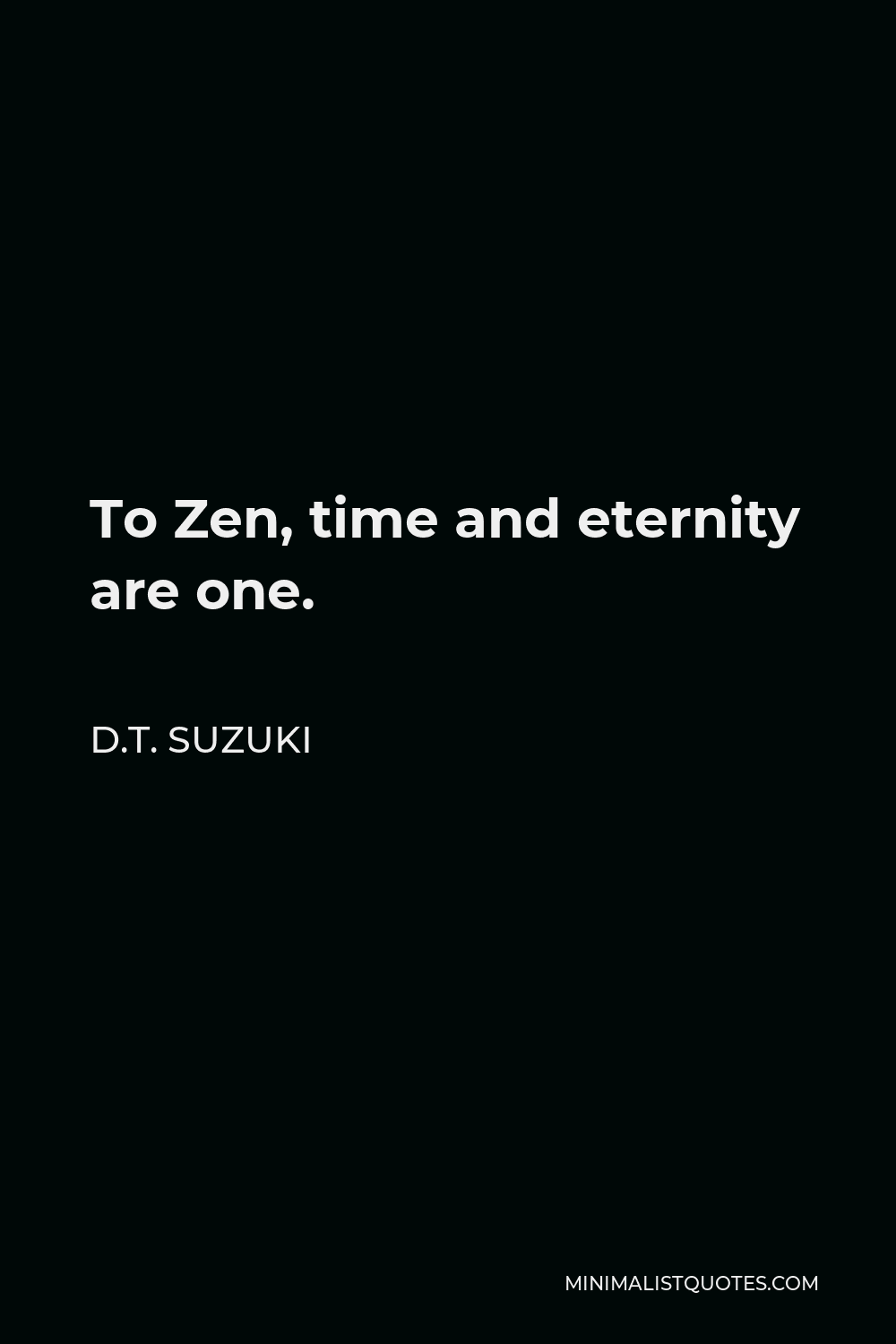
To Zen, time and eternity are one.
D.T. SUZUKI -






Zen is the spirit of a man. Zen believes in his inner purity and goodness. Whatever is superadded or violently torn away, injures the wholesomeness of the spirit. Zen, therefore, is emphatically against all religious conventionalism.
D.T. SUZUKI -





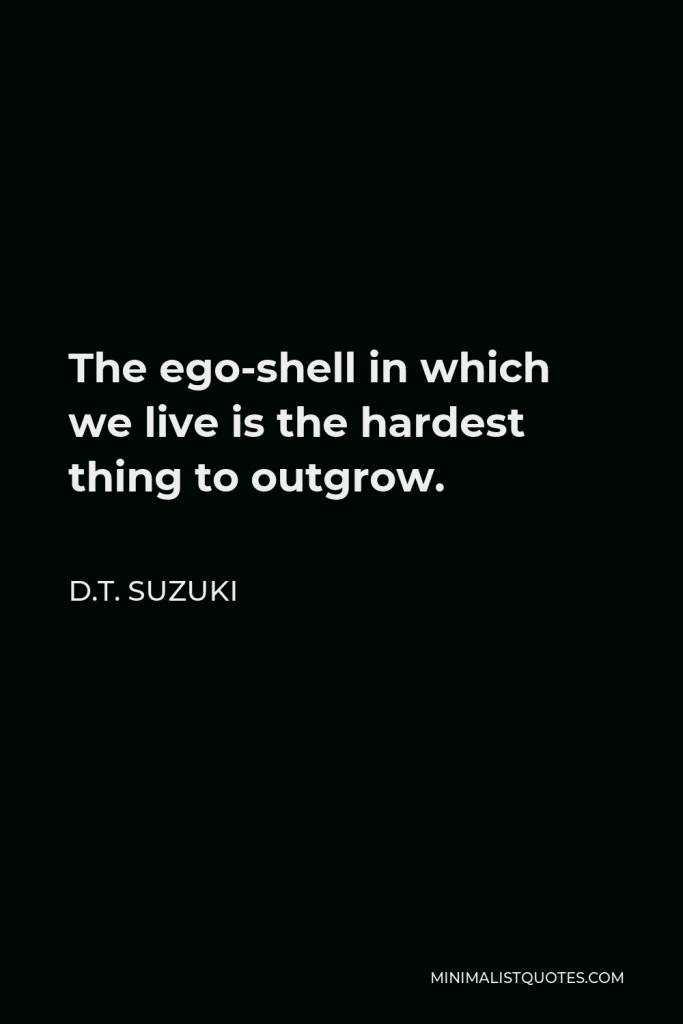

The ego-shell in which we live is the hardest thing to outgrow.
D.T. SUZUKI
